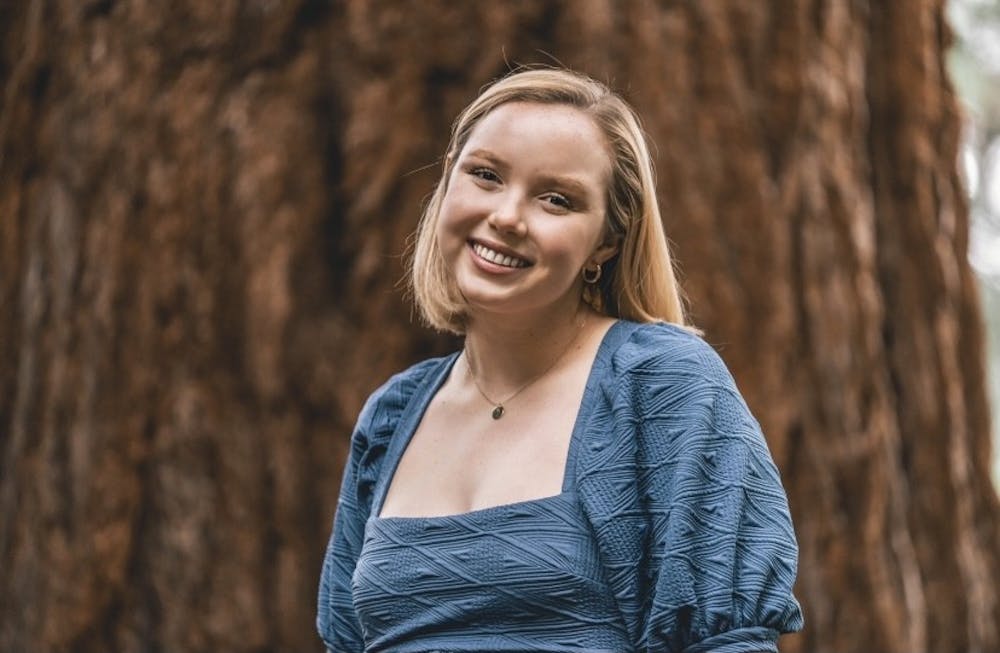We've all had that moment: you're upset, struggling with your mental health, or just facing hardship. When you call a friend or family member for support, what do you get in response? Do they say, “Look on the bright side,” “It could be worse,” or my personal least favorite, “Stay positive”?
While usually well intentioned, comments like these can be a form of toxic positivity.
You’re not alone. This is something society has forced upon the best of us.
From the very first “shhh, shhh, don’t cry,” we are taught to suppress our emotions, quiet our sadness and silence ourselves.
Ever since I was little, I enjoyed expressing my grievances about the world (in an occasionally slightly dramatic way). However, because of this trait, I was labeled as “negative” by my friends and family members – and I hated it.
While it’s true that I am not an optimist by any means, I always thought that society's way of forcing positivity on us (especially women due to damaging gender norms) was, quite frankly, bullshit.
Toxic positivity is the belief that no matter how dire or difficult a situation is, people should maintain a positive mindset. It's a “good vibes only” approach to life that looks pretty from the outside but can actually be incredibly damaging.
While there are undoubtedly benefits to engaging in positive thinking, toxic positivity feeds on the societal pressure to reject difficult emotions, resulting in a cheerful, often falsely positive pretense.
Every day of my life, I have struggled with this. I have brushed off comments about being negative by laughing and saying, “it’s part of my charm.” I have censored myself and my feelings to be more socially acceptable. I have silenced myself and my struggles.
As a young woman who has faced a laundry list of very real struggles and mental illnesses, including anxiety, ADD, depression, PTSD, and disordered eating, I feel that I can say, with extreme certainty, that sometimes life is a bitch. And that is okay. We all deserve to express the pain we are feeling inside.
We all know that having a positive outlook on life is viewed in a positive way. But the problem is that life, and its circumstances, aren’t always positive. Throughout the course of our lives, we all occasionally face painful experiences, and therefore “negative” emotions. Despite the unpleasant nature of these emotions, they are important and need to be felt and dealt with openly and honestly.
Toxic positivity takes the ideology of “positive thinking” to an overgeneralized absolute. This attitude doesn't only stress the importance of optimism, it diminishes and discounts any trace of human emotions that aren't considered to be “positive” by society.
To state it bluntly: We shouldn’t have to pretend that everything’s okay when it isn’t.
There’s nothing inherently wrong with positivity. In fact, it can be a force for good in the lives of people that allow themselves to balance it and feel their feelings when needed. The problem is when positivity morphs into over-positivity and becomes harmful – when it’s insincere, forceful, or delegitimizes real feelings of anxiety, fear, sadness, or hardship.
While it is true that over the past few years, the stigma surrounding mental health has begun to thaw – and in light of the COVID-19 pandemic, people have become more in touch with their feelings – we still have an immense amount of work to do as a society.
Toxic positivity is one way that society is failing to accept and validate the wide variety of emotions that the human heart can house.
After years of therapy, podcasts and self-reflection, I have finally gotten to the point where I feel comfortable doing what I call “expressing my discontent.”
Maybe after reading this you still feel like positivity is the way to go. You might not feel that you in fact are forcing positivity on yourself. And in turn, you might feel inclined to label me as “negative” — and that’s fine.
Either way, next time you are facing life's difficulties, I hope you don’t hold your feelings inside out of fear of how others will respond. I hope you can accept all of your emotions – even your “negative” ones. I hope you don’t silence yourself.
Haviland Stewart is the Living Section Editor at The Beacon. She can be reached at stewarth22@up.edu.
Have something to say about this? We’re dedicated to publishing a wide variety of viewpoints, and we’d like to hear from you. Voice your opinion in The Beacon.









